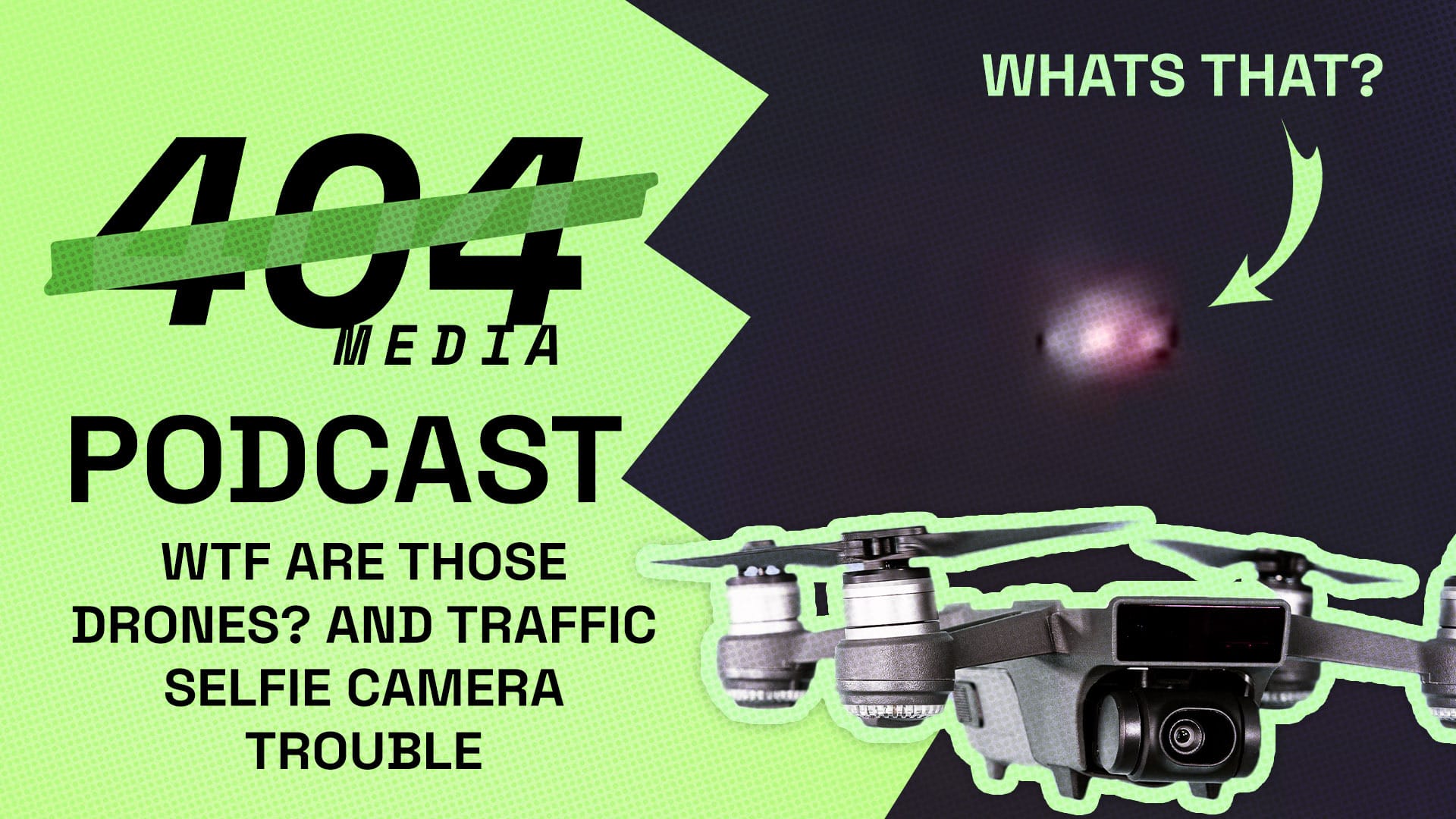Podcast: The New Jersey Drone Panic

This week Jason, as both a drones and aliens reporter, tells us what is most likely happening with the mysterious drones flying over New Jersey. After the break, Joseph explains how cops in Serbia are using Cellebrite phone unlocking tech as a doorway to installing malware on activists' and journalists' phones. In the subscribers-only section, Sam tells us all about an amazing art project using traffic cameras in New York City.
Listen to the weekly podcast on Apple Podcasts, Spotify, or YouTube. Become a paid subscriber for access to this episode's bonus content and to power our journalism. If you become a paid subscriber, check your inbox for an email from our podcast host Transistor for a link to the subscribers-only version! You can also add that subscribers feed to your podcast app of choice and never miss an episode that way. The email should also contain the subscribers-only unlisted YouTube link for the extended video version too. It will also be in the show notes in your podcast player.








